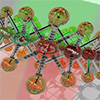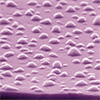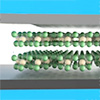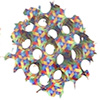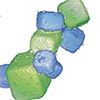Human science
Human science (or human sciences in the plural), also known as humanistic social science and moral science (or moral sciences), studies the philosophical, biological, social, and cultural aspects of human life. Human science aims to expand our understanding of the human world through a broad interdisciplinary approach. It encompasses a wide range of fields - including history, philosophy, sociology, psychology, evolutionary biology, biochemistry, neurosciences, folkloristics, and anthropology. It is the study and interpretation of the experiences, activities, constructs, and artifacts associated with human beings. The study of the human sciences attempts to expand and enlighten the human being's knowledge of their existence, its interrelationship with other species and systems, and the development of artifacts to perpetuate the human expression and thought. It is the study of human phenomena. The study of the human experience is historical and current in nature. It requires the evaluation and interpretation of the historic human experience and the analysis of current human activity to gain an understanding of human phenomena and to project the outlines of human evolution. Human science is the objective, informed critique of human existence and how it relates to reality.
Underlying human science is the relationship between various humanistic modes of inquiry within fields such as, history, sociology, folkloristics, anthropology and economics, and advances in such things as genetics, evolutionary biology and the social sciences for the purpose of understanding our lives in a rapidly changing world. Its use of an empirical methodology that encompasses psychological experience contrasts to the purely positivistic approach typical of the natural sciences which exclude all methods not based solely on sensory observations. Modern approaches in the human sciences integrate an understanding of human structure, function and adaptation with a broader exploration of what it means to be human. The term is also used to distinguish not only the content of a field of study from those of the natural sciences, but also its methodology.
Check out these latest Nanowerk News:



